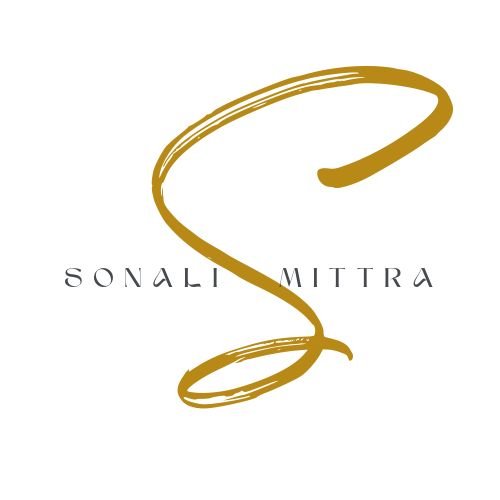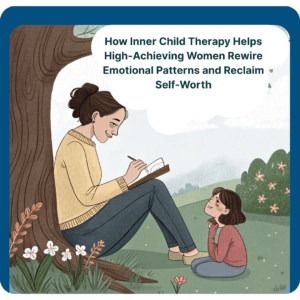Who are you proving to be?
We spend our entire lives trying to prove something or the other to the world. We would like to prove that we are successful. We would like to prove that we are good people. We would like to prove that we are strong. We would like to prove that we are authentic and honest. We would like to prove that we are victims. How heavy and draining is that? What if we didn’t have to prove anything? How would your life be then?
Proving is a defence mechanism. We mostly try to prove ourselves to be right and others to be wrong or vice-versa. Proving is to establish the rightness and wrongness of a certain point of view. We create most parts of our lives in order to prove something. We create problems and then solve them to prove we have resilience. We create trauma and then survive it to prove we have endurance. We create separation in order to prove that we are independent.
Proving others to be wrong and yourself to be right
There is almost a sense of achievement in proving others to be wrong, for some people. The quintessential remark: “Didn’t I tell you this” is symptomatic of the satisfaction one feels when being right. However, it comes at the cost of others feeling judged and even worthless. Is that empowering? No. It creates fear of judgement and underconfidence for that ‘other’ to make future choices. Proving comes with a cost, be it tangible or intangible. How much energy, emotions and resources do you have to spend to prove yourself to be right? Is it worth it for the monetary gratification you receive?
I had a client who was struggling in her relationships. She had the righteousness of a saint and a moral code of a religious leader. She judged her partner (and everyone else) from the same lens. More she judged others, the more contrasting people showed up in her life as if challenging her values. She fought. She fought hard to maintain the sanctity of her beliefs. Did it give her contentment? No. Did it exhaust her? Yes. Did it make it difficult for her to have joy in her relationships? Yes. In order to prove herself to be right, she blew up her finances, relationships, and even her health. At this point of weariness, she questioned herself whether her righteousness was more important to her than her freedom to live a more joyful life? Once she got the awareness of what it was costing her to prove herself to be right all the time, she could make a choice to be free from it all. It was relieving to say the least.
Proving yourself to be wrong and others to be right
How many times does it happen that you immediately go into self-criticism when someone judges you? I am not caring enough, he is right. I am not pretty enough, they are right. I am not responsible enough, she is right. Once we align with the projections of others, we create our lives to prove it to be right. This can be attributed to a deep seated need to please others. You are right, and I am wrong. Will you accept me now if I prove that to be true?
A lady who was stuck in an emotionally abusive marriage for five years came to me for counselling. It took her multiple sessions to even realise she was being gaslighted. Her husband would always tell her that because he loves her that he keeps shouting at her for her own good. It is so she can improve, become better and happier. Was that working for her? No. She became more depressed by the day. She was gradually becoming worse at managing her house, her job and her life in order to prove her husband to be right about her. That she cannot do anything right. That she cannot be successful. That she cannot be happy without him. Moment she started to align with his point of view, she started creating her life, career, and health to prove it to be right. The lack of confidence and self-belief allowed her husband to manipulate her to an extent that she started believing them to be true. What was the cost of this? She pulled herself down into a state of non-existence.
Who are you proving to be?
Once you get an awareness of what, why and for whom you are proving to be right or wrong, a lot can change for you. On acknowledging this, you will be able to choose whoever you would like to be, how would you like to be? What would you like your life to be like, body to be like, finances to be like, relationships to be like?
Asking questions is a powerful way to start changing your life. Albert Einstein once said that if he had a problem to be solve in an hour, he would spend 55 min asking the right questions and it would take no more than 5 min to answer it.
Life is not a competition to win over others nor is it to allow others to take over yours. Life is about exploring the unknown, expanding beyond the limitations, and evolving to a greater possibility. Who would you choose to be now if you had nothing to prove?
–
Natasha Arora
Clinical Psychologist and Research Executive at Treta Foundation.
It means trying to show others who you think they want you to be, instead of being who you really are inside.
Because of comparison, fear of rejection, or wanting validation from others (family, society, peers).
It can cause anxiety, exhaustion, low self-esteem, constant self-doubt, and feeling disconnected from yourself.
Yes—by understanding your own values, practicing self-acceptance, and reducing comparison with others.
Noticing thoughts like “What will they think?”, doing things out of fear instead of joy, or changing behavior to fit in.
Not entirely — human beings often want connection. The issue is when it drives your life decisions and you lose your sense of self.
Focus on small wins, practice self-compassion, set boundaries, and spend time doing what truly feels meaningful to you.
Yes. Therapy can help you uncover underlying fear, heal past wounds, learn self-worth, and reduce dependency on others’ approval.
Often yes—seeing curated lives and likes can magnify comparison and pressure to appear a certain way.
Do something small that feels real to you—even if it feels imperfect—and resist trying to fit others’ expectations in that moment.





This article on Who Are You Proving to Be? really made me reflect on my own patterns. It’s so true that the need for validation often pushes us to prove ourselves, sometimes at the cost of inner peace. The part about shifting from external approval to self-acceptance really hit home—something I’m definitely working on!
This post really made me pause and reflect! The idea of constantly proving ourselves—whether to society, family, or even to ourselves—can be exhausting and, as you pointed out, a defense mechanism. It’s so important to break free from this cycle and step into self-acceptance. Your insights on this are truly eye-opening.
I appreciate this perspective so much! Proving yourself is often tied to fear and insecurity, but you’ve reframed it as an opportunity for self-awareness and freedom. This was exactly what I needed to read today.
Wow, this resonated deeply. I’ve been unknowingly stuck in the trap of proving myself for years. Your questions at the end really made me pause and rethink my approach to personal growth.
Such a beautifully written post! Proving yourself can sometimes feel like a never-ending cycle, but your insights remind me to take a step back and reassess what truly matters. Thanks for this wake-up call!
This really made me reflect on my own journey. I’ve always been caught up in proving myself at work, in relationships, even to my family. But your words make me rethink—who am I really doing it for?
I love how you challenge the idea of constantly proving yourself. It’s such a powerful reminder that self-worth isn’t determined by validation from others. Thank you for this thought-provoking piece!
This post hit home for me! I’ve spent so much of my life proving myself to others, only to realize it was exhausting and unfulfilling. Your perspective on shifting toward self-acceptance is exactly what I needed to hear today.
Wow, this really resonated with me! I’ve been working on personal growth for a while now, but I didn’t realize how much of my actions were still influenced by proving my worth to others. Your perspective is refreshing and so needed—thank you for sharing these powerful thoughts!
This post really made me reflect on my own journey of self-validation. I’ve often found myself trying to prove something to others instead of focusing on my own personal growth. Your insights on this are eye-opening!
This line: “You are not a savior, you are not a project, you are not the medicine”—gave me chills. I’ve spent years trying to prove I’m enough by fixing others. It’s time to stop. Thank you for this gift of awareness.
I’ve been guilty of needing to be right to feel in control, and it’s cost me peace. Your words made me pause and reflect—who am I trying to prove this to anyway? Loved this post.
Wow—your insight about creating problems just to fix them really hit hard. I never realized I was doing that just to feel useful or needed. Thank you for putting it into words so powerfully.
This post felt like a mirror to my life. I’ve constantly tried proving myself—to family, at work, in relationships—and it’s exhausting. Thank you for reminding me that self-worth doesn’t come from anyone else’s scoreboard.
I’ve always aimed at proving to be indispensable at work, often leading to burnout. This blog post was a timely reminder to reassess my priorities and focus on well-being.
Proving to be the victim in every situation has been my defense mechanism. This article helped me understand the underlying patterns and the need to break free.
The idea of proving to be right, even when it’s detrimental to relationships, is something I’ve struggled with. This blog encourages introspection and growth.
Proving to be the ideal partner has led me to lose sight of my own needs. This article shed light on the importance of self-awareness and setting boundaries.
I’ve been caught in the cycle of proving to be successful in the eyes of others, chasing promotions and accolades. This blog made me question who I’m really doing it for and at what cost.
The concept of proving to be right all the time resonates deeply. I’ve often found myself in arguments just to validate my point, forgetting the emotional toll it takes. This article offers a fresh perspective on letting go.
This piece on proving to be someone we’re not really hit home. I’ve always tried to prove to be the strong one in my family, suppressing my own vulnerabilities. It’s time to embrace my true self.
Reading ‘Who Are You Proving to Be?’ was a wake-up call. I’ve spent so much energy proving to be the perfect daughter and employee, often at the expense of my own happiness. This article made me realize the importance of living authentically.
I absolutely loved this post on ‘Who Are You Proving to Be’. It feels like you’ve voiced what many of us secretly struggle with every day
Your blog ‘Who Are You Proving to Be’ struck a chord with me. It made me realize how often I act to meet others’ expectations instead of my own desires.
Who Are You Proving to Be’ is such a simple yet profound question. This post gently reminded me to check in with my true self. Truly inspiring!
A brilliant piece on ‘Who Are You Proving to Be’. It’s made me rethink the reasons behind many of my daily choices. Thank you!
What a thoughtful write-up on ‘Who Are You Proving to Be’. I’ve been struggling with this very question and your words brought clarity.
This post titled ‘Who Are You Proving to Be’ really hit home. Such an eye-opener about the hidden pressures we put on ourselves.
The concept of ‘Who Are You Proving to Be’ is so relevant in today’s world. We often forget to live authentically. Loved this!
Loved reading ‘Who Are You Proving to Be’ — such a powerful question that we rarely ask ourselves in this busy life.
This blog on ‘Who Are You Proving to Be’ made me stop and think deeply. Am I living for myself or for others’ approval? Beautiful reminder!
Such a beautifully written piece. The question ‘Who are you proving to be?’ is haunting and healing all at once. This post helped me pause and reflect deeply.
I’ve never read something that so clearly articulated the invisible pressure to constantly prove ourselves. This blog gave me the permission I didn’t know I needed—to just be.
This post really hit home. I’ve spent so much time proving to be someone I thought others wanted me to be. Thank you for this gentle reminder to come back to myself.
Reading this felt like looking in a mirror. I didn’t realize how much of my identity was wrapped in proving to be ‘successful’ by society’s standards. This blog gave me a lot to think about.
This post on “Who Are You Proving to Be” really hit home for me. It made me pause and ask myself — am I living authentically or just proving something to the world? Thank you for writing this with such honesty and depth. Truly thought-provoking!
Wow—this piece on proving to be someone you think the world expects was so relatable. I keep asking: ‘For whom am I really doing this?’ Grateful for this invitation to pause.
Reading about proving to be authentic, strong, or moral hit home. The part about creating problems just to solve them—what a revelation. Thank you for helping me name the pattern.
I realized I was always busy proving to be the strong one at home and work. This article helped me see the cost—disconnected relationships and no peace. Time to make a new choice.
Thank you for sharing insights on proving to be successful or right. I see now how much energy I’ve wasted trying to prove others wrong. Realizing this shift feels like freedom.
This article on proving to be resonated deeply. I’ve spent years trying to prove I’m worthy—only to feel more exhausted. Your question, ‘Who would you choose to be if you had nothing to prove?’ was a powerful wake‑up call.
Thank you for this beautifully written post on ‘Who are you proving to be?’ It made me question my motivations deeply and realize I’ve been trying to prove worth to others instead of honoring myself.
Wow—‘Who are you proving to be?’ really hit home. I’ve spent my life trying to prove strength and success, but at what cost? This piece is a healing reminder to choose authenticity.
Reading ‘Who are you proving to be?’ made me pause so many times. That idea of creating problems just to solve them… I’ve been doing that for validation. Your post gave me relief.
This article, ‘Who are you proving to be?’ was exactly the nudge I needed. I see now how exhausting it is to always defend being right—and heal myself through this question instead. Thank you, Sonali!
This blog felt like a warm reminder that I’m enough, even when I’m struggling. I loved how you explained the pressure of proving yourself without making it feel like a lecture. It made me reflect on my own patterns and want to be kinder to myself.
I relate so much to the part where you said we disconnect from our real self when we try to fit into others’ expectations. I’ve done that all my life. This post gives me hope that I can slowly find my true identity again, without pretending.
The question “Who are you proving to be?” genuinely shook me. I didn’t realize how much of my life is shaped by fear of not being accepted. I want to learn how to live without needing validation all the time. Thank you for giving me that awareness.
Your words made me think about how much energy I’ve wasted trying to be “good enough” for others. Every decision I made was based on what people would think. This post is like a mirror I was scared to look into, but I really needed it today.
This article felt like you were talking directly to me. I’ve spent years trying to prove I’m strong and capable, but deep down I’m tired. I just want to be myself without worrying about who approves or judges me. Thank you for reminding me that I’m allowed to stop performing and start living.
Very thought-provoking post! I like how you framed the idea of “proving yourself” not as a one-time moment but as a continuous journey. It resonated with me because in digital marketing (especially SEO), reputation and trust build gradually — over time and through consistency. Thanks for sharing.
What a meaningful read! Your ideas highlight the importance of self-awareness and intentionality in how we present ourselves. Especially in niches like SEO or blogging, where what you “prove” to others often reflects your values — this post inspires me to pause and re-evaluate how I want to be perceived.
This post really made me pause and question: am I ever living for myself, or always trying to prove something to others? Thank you for bringing this awareness — I’m starting to see how much I’ve tied my self-worth to other people’s expectations.
Such beautifully articulate insights on Who are you proving to be! I loved how it pushes us to question our inner drivers instead of just living on autopilot. Looking forward to more posts like this
Thank you for your sharing. I am worried that I lack creative ideas. It is your article that makes me full of hope. Thank you.